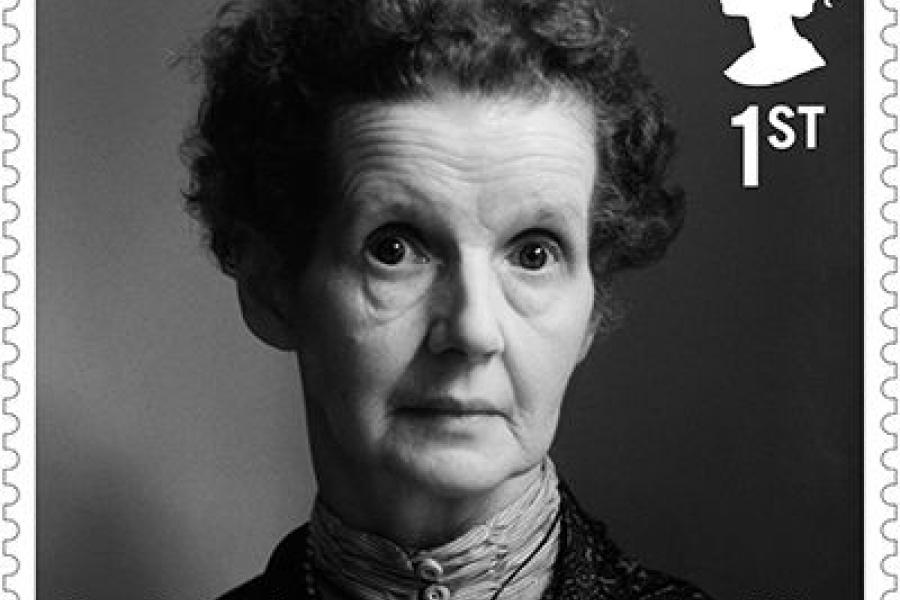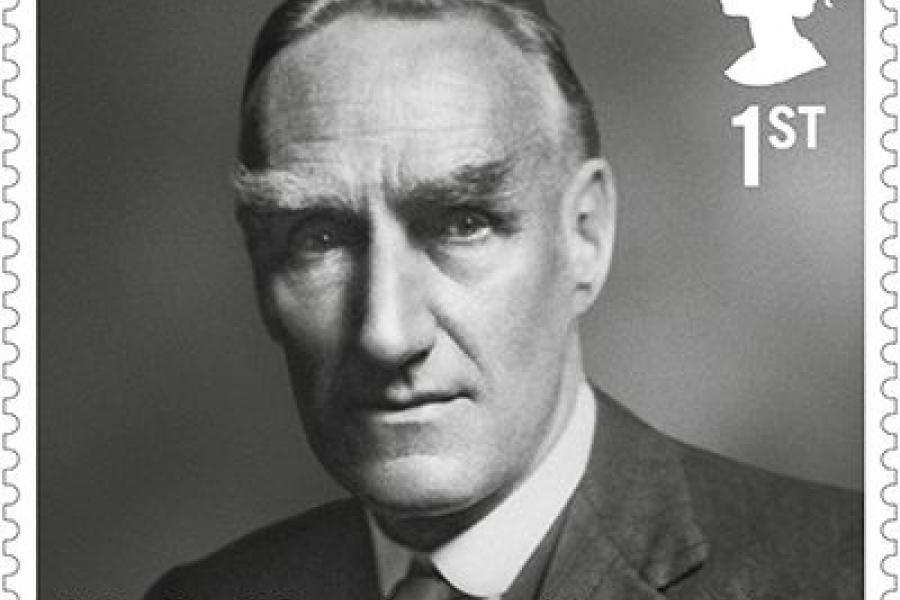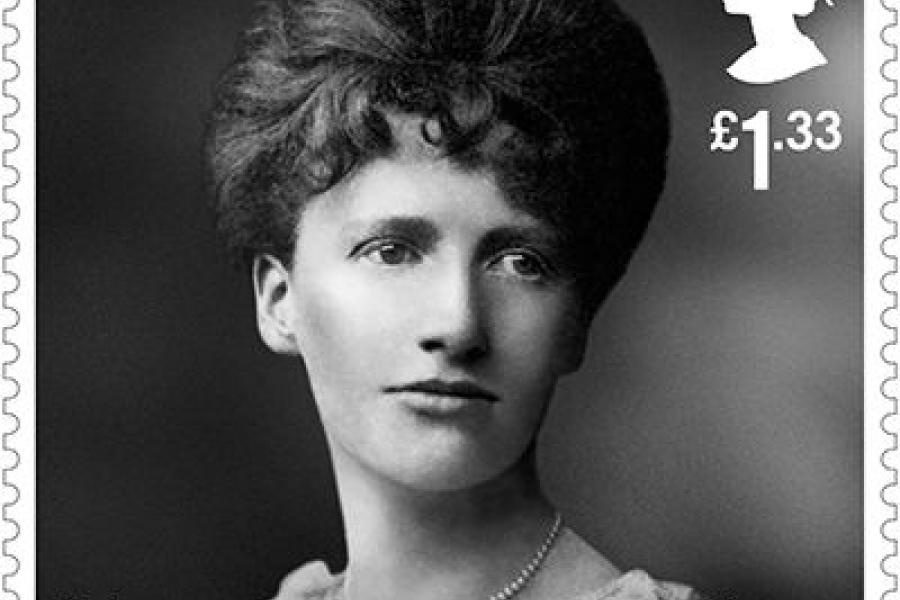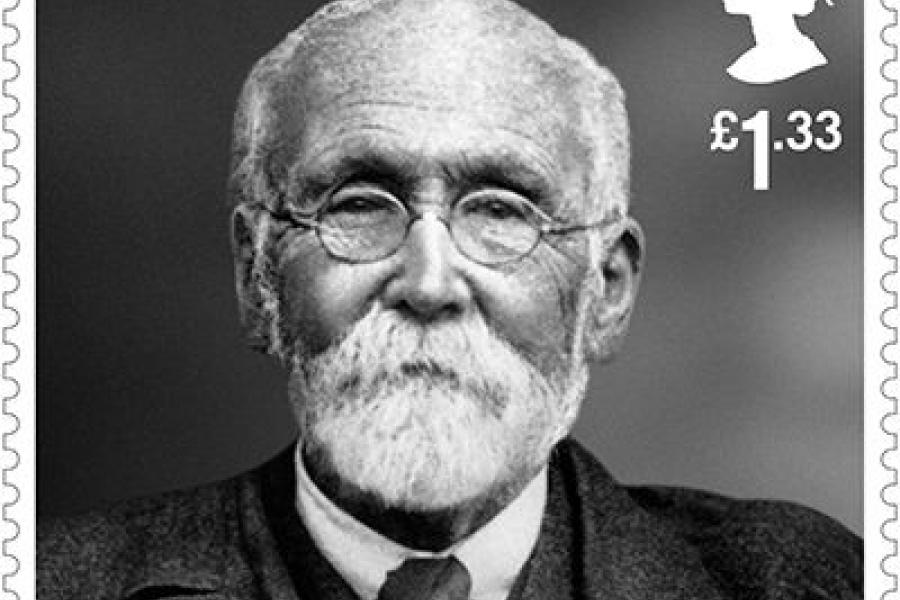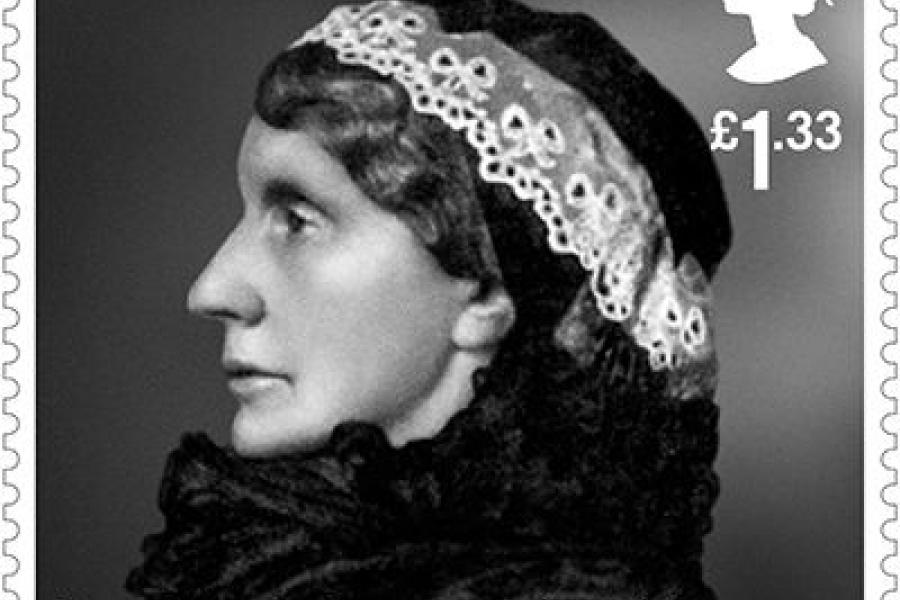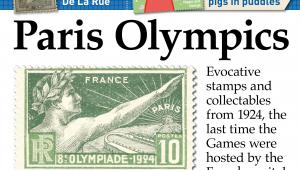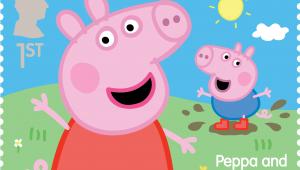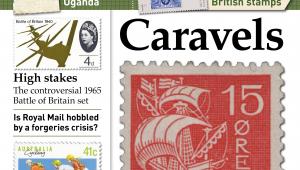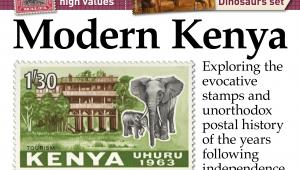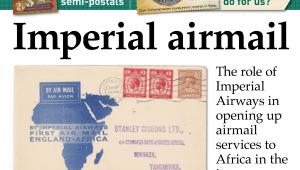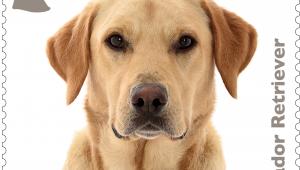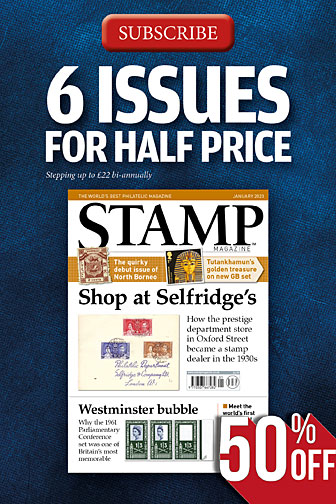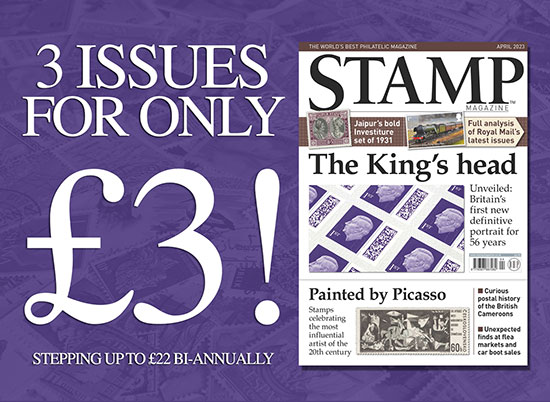British Humanitarians
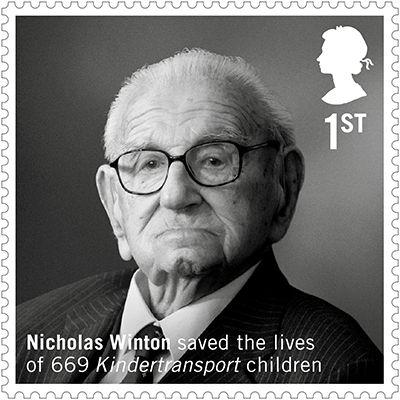
The British Humanitarians issue on March 15 will commemorate the lives and achievements of six individuals who devoted their energies to helping and protecting other people, both in the UK and abroad.
The three men and three women, active in the 19th and 20th centuries, shared an innate concern for their fellow human beings struggling against illness, poverty, violence or hypocrisy, and a single-minded desire to help them in practical ways.
Unusually, the issue appears to be an example of people power heavily influencing Royal Mail’s stamp programme. It was announced after more than 100,000 people supported an online petition for Nicholas Winton to be honoured, following his death last year; there is no evidence that a set commemorating humanitarians was already planned.
Designed by Hat-Trick, based on black-and-white photographs, the stamps are printed in litho by International Security Printers, and come in se-tenant strips of three.
1st class Nicholas Winton
Winton (1909–2015) is credited with saving the lives of 669 mostly Jewish children from almost certain death in Nazi concentration camps, by organising their evacuation from Czechoslovakia to Britain or Sweden in 1939, on the eve of World War II. He visited refugee camps compiling lists of eligible children, found foster parents for them in Britain, and organised their safe passage across Europe on his Kindertransport trains.
1st class Sue Ryder
Ryder (1924–2000) volunteered as a relief worker in Europe at the end of World War II, helping refugees, orphans and concentration camp survivors, most notably in Poland. In 1953 she established the Sue Ryder Foundation, which set up more than 80 homes and hospices around the world for people with physical or mental disabilities. She was married to Leonard Cheshire, who also founded a major charity.
1st class John Boyd Orr
Orr (1880–1971) advocated improved nutrition and global co-operation over food provision as means of fighting poverty and ensuring peace. In 1945 he was appointed the first Director-General of the United Nations’ Food & Agriculture Organisation, and in 1946 established the International Emergency Food Council to address post-war famine. In 1949 he was awarded the Nobel Peace Prize for his efforts to eliminate world hunger.
£1.33 Eglantyne Jebb
Jebb (1876–1928) founded the Save The Children Fund in 1919 to help relief work for German and Austrian children reduced to poverty by World War I, and later victims of the Russian famine. She drafted the Declaration of the Rights of the Child, which was adopted by the League of Nations in 1924, and campaigned tirelessly for the welfare and education of children.
£1.33 Joseph Rowntree
Rowntree (1836–1925) was a businessman who ran the family confectionery firm in York, but also a philanthropist keen to improve his employees’ quality of life. He introduced medical services, free education, sickness benefits and pension schemes for them. In 1904, he used his personal wealth to endow three trusts to promote social reform, adult education and affordable housing for the working classes.
£1.33 Josephine Butler
Butler (1828–1906) campaigned for women’s rights and access to higher education. She was pivotal in the successful battle to repeal the Contagious Diseases Acts, which were used to deny civil rights to women suspected of being prostitutes, and later campaigned against child prostitution and for female suffrage.
OTHER PRODUCTS
The presentation pack written by journalist Nigel Fountain features summaries of the lives of the featured humanitarians, in a layout inspired by Nicholas Winton’s scrapbook.
Stamp cards and a first day cover are also available.
PRICES
Set of 6 stamps £5.88
Presentation pack £6.40
Stamp cards £2.70
First day cover £7.54
VERDICT
COMMEMORATIVE WORTH 5/5
Selfless people are more worthy than most of this kind of philatelic honour
QUALITY OF DESIGN 3/5
Although based on photographs of varying quality, some of the portraits are very striking
WOW FACTOR 1/5
The set will probably rely heavily on the Winton stamp to gain public attention

